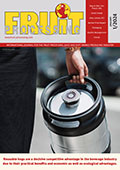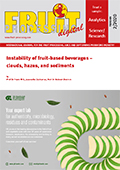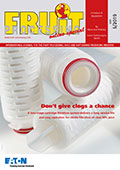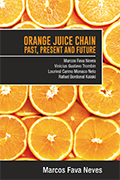Using Packaging To Avoid Food Wastage
According to the problem that half of all food produced worldwide is disposed of INCPEN, an institute for…
According to the problem that half of all food produced worldwide is disposed of INCPEN, an institute for packaging and environment, awarded packaging a key role as an avoidance strategy.
Without packaging, manufacturing, transport, distribution, supplies and purchases would be impossible for practically all consumable goods. The kind for packaging makes the different.
Till now, poor storage, strict orientation toward the best before date, special offers for larger packs and stingy consumer behavior all contribute toward the fact that increasing amounts of food are simply thrown away. The institute claims that packaging can play an outstanding role in this environment in order to develop practical solutions to the problem.
High-quality packaging can significantly reduce food wastage along the supply chain if it is capable of considerably prolonging durability and shelf life, ensuring non-hazardous and safe transport, and taking consideration of the changes in lifestyle and consumer habits. With reference to its protective and conserving properties, packaging today can be regarded as the most important "green technology".
Actega DS attributes top priority to avoiding food wastage, promoting environmentally-compatible packaging and packaging solutions capable of meeting the challenges of the future. The following applies for the entire portfolio of seal solutions for the food and beverages industry: conformity with food laws in accordance with the FDA and the EU.
For example, PROVALIN®, a compound which is free of PVC and plasticizers for metal vacuum seals. We already avail of an extensive range of applications for this product. Practically all requirements concerning contents, sealing processes, storage and seal sizes can be complied with. All types of contents can be safely packaged across the entire BBD. There are absolutely no restrictions during the filling and sealing process – including hot- and cold-filling as well as subsequent heat treatment such as pasteurization and sterilization – or in terms of the lid size.
For example, Svelon® representing various versions of PVC-free granulate for crown corks and aluminum seals for beer, mineral water, wine etc. The 855 variant is meanwhile the international industrial standard and approved by all major filling companies and manufacturers of brand items. The 880 TC compound is the world's first PVC-free compound for twist crown corks.
For example, Oxylon®, a barrier compound specially for protecting beverages against oxygen and other volatile substances. The 420 version, for example, is recommended by the French Champagne Association while the CS 25 variant applies as the standard barrier compound for beer and fruit juice worldwide.
For example, SvelOX®, a scavenger compound which absorbs the oxygen present in the sealed bottle and prevents migration by oxygen into the contents.
In pursuit of these seal solutions, the company has been working with the most flexible, low-migration, heat-resistant material – TPE – for several decades, thereby dispensing with PVC and phthalates altogether.
Press contact: !Wir: Kommunikation und Unternehmensberatung GmbH, Dagmar Schumann, Mühlenkamp 4, 22303 Hamburg, +49 40 2792402, dagmar.schumann@wirkomm.de









